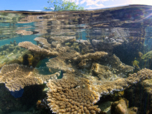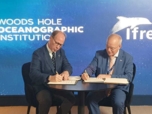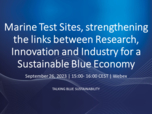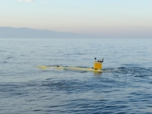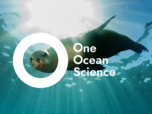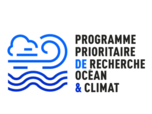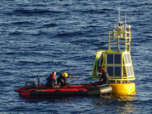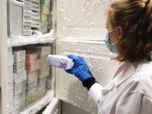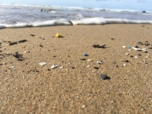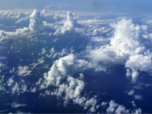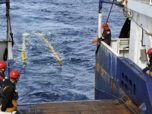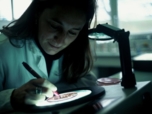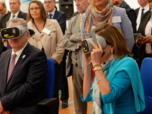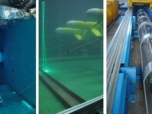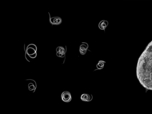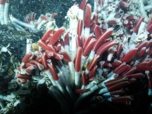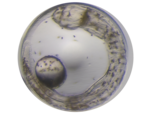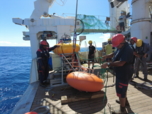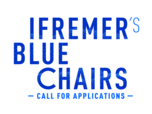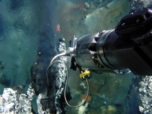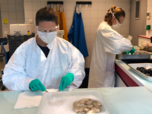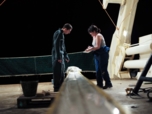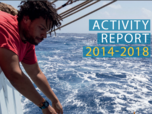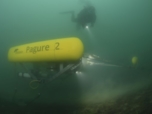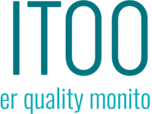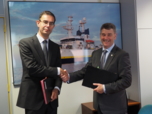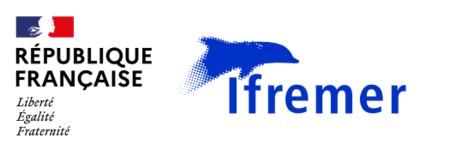
'The mysterious disease of Senegalese fishermen': the culprit is a toxic marine microalga
In 2020 and 2021, a mysterious skin disease affected more than a thousand Senegalese fishermen, raising concern and international attention. A study conducted by an international scientific consortium and published on February 13 in the journal EMBO Molecular Medicine reveals the origin of this disease: a toxin produced by the marine microalga Vulcanodinium rugosum triggers a severe inflammation of the skin cells. This study highlights the increased risks associated with environmental toxins, exacerbated by global change. It opens up prospects for better monitoring and prevention of the impact of these toxins on human health, while offering new therapeutic opportunities.
When the Earth is breathing : How terrestrial tides awaken submarine faults?
A recent study by IFREMER reveals that terrestrial tides, caused by the gravitational pull of the Moon and the Sun, can reactivate submarine faults. This reactivation could trigger significant methane emissions — a potent greenhouse gas — into the ocean and subsequently the atmosphere. It could also influence the seismic activity of faults, potentially transforming our understanding of the origins of certain earthquakes.
On the trail of fauna associated with polymetallic nodules in the abyssal plains of Clarion-Clipperton
At a time when industrial companies are interested in the metals and rare earths found in the deep sea, Ifremer scientists are heading for the Clarion-Clipperton zone to discover the biodiversity that lives on and around polymetallic nodules. Aboard L'Atalante, a vessel of the French Oceanographic Fleet operated by Ifremer and its armament subsidiary Genavir, the scientists of the EDEN campaign are studying the abyssal plains of this Pacific region from November 2024 to January 2025 to gain a better understanding of the biodiversity associated with polymetallic nodules and how these ecosystems function.
Shellfishes emit CO2, what solutions exist?
In an article published in Reviews in Aquaculture, scientists reveal the idea that shellfish farms capture atmospheric carbon dioxide (CO2), is incorrect. In fact, shellfish emit CO2 as they build their shells. Returning shells to the water after the meat has been consumed, or cultivating algae with the shellfish, are promising ways of reducing CO2 emissions from shellfish farming.
From herpesvirus in oysters to cancer in humans: the discovery of shared mechanisms opens up new avenues of research
Scientists from the Ifremer reveal in the journal Science Advances that, as with most species, the age of oysters influences the survival of their offspring: the older the oysters, the higher the mortality of their larvae.
Soon a unified scientific platform for coastal ocean observation throughout Europe?
Today, over 670 observation platforms for the coastal environment are spread across Europe, from the Norwegian Sea to the Mediterranean. To harmonize these observation and research capabilities, 39 European scientific partners are working together to build the JERICO transnational research infrastructure. The aim: to observe the coastal ocean from every angle, and to study in greater detail rare or extreme phenomena, such as marine heat waves or storms, and their impacts. From June 17 to 21, they met in Brest to mark the end of the third phase of JERICO's development, with a view to its continued existence by 2030.
Some species may better tolerate climate change than expected
A new model, developed by Ifremer and Lausanne University researchers and published in the journal Nature Ecology and Evolution, reassesses the proportion of terrestrial and marine species threatened with extinction by climate change. While the forecasts of traditional models estimate that the diversity of terrestrial species in tropical areas could decrease by 54% between now and 2041-2060, this model is more moderate, predicting a decrease of 39%. Nevertheless, this proportion remains alarming and confirms the importance of taking urgent measures to mitigate climate change and its impact on biodiversity.
IFREMER and Woods Hole Oceanographic Institution renew their partnership
Dubai, United Arab Emirates (Dec. 3, 2023) – Today, leaders at two of the world’s leading ocean science institutions signed a bilateral Memorandum of Understanding (MoU) extending their working partnership in the exploration, study, and protection of the world’s oceans.
Register for the Webinar "Marine Test Sites, strengthening the links between Research, Innovation and Industry for a Sustainable Blue Economy" - 26...
IFREMER, ISSS and MEP Jutta Paulus are organising the webinar “Marine Test Sites, strengthening the links between Research, Innovation and Industry for a Sustainable Blue Economy” on 26/09/2023 at 15h CEST (1 hour webinar), together with speakers from ENEA, Hydroquest and North Sea Farmers (in partnership with TNO).
Seismic faults: Accelerating research in slow slip and fault creep
Understanding whether slow slip along fault boundaries is likely to eventually cause a high-magnitude earthquake is essential in assessing seismic hazards. A study recently published by Ifremer in the journal Nature Communications clearly characterizes the phenomena associated with slow earthquakes further to the analysis of water pressure in marine sediments.
Ocean sciences are essential in the fight against climate change
On October 25, Ifremer, the CNRS and the IRD, with support from the Ocean & Climate Platform and ESA astronaut Thomas Pesquet, are launching a digital world tour of ocean and climate sciences, christened OneOceanScience.
Ocean and climate: French research called on to take part in a Priority Research Programme
Celebrating 10 years of deep sea observation
Similar to a space station, in 2010 the EMSO Açores scientific observatory was deployed 1700 m onto underwater mountain ranges and volcanos in the middle of the Atlantic Ocean. The oceanographic vessel Pourquoi Pas ? (Why not?) has been stationed since 13th September to conduct the annual maintenance of this battery of technologies (Momarsat campaign, coordinated by Ifremer and the CNRS).
New analyses confirm the absence of SARS-CoV-2 in shellfish but reveal traces in wastewater in the Grand Ouest area
Following the detection of the coronavirus SARS-CoV-2 in wastewater in Paris and the Great East area, Ifremer is now looking into the possible contamination of wastewater by the virus by carrying out a series of samples at three treatment plants in the Great West area. While the study of these samples confirms the presence of the SARS-CoV-2 genome in 9 out of 13 wastewater samples, new analyzes also confirm the absence of any trace of the virus in shellfish.
What if there was an alternative to antibiotics in the ocean?
Frédérique Le Roux, an IFREMER researcher in molecular microbiology at the Roscoff marine station (CNRS/Sorbonne Université), has won a €2.5 million Advanced Grant from the ERC (European Research Council) for DYNAMIC, a project that studies phages in marine environments. Phages, which are natural predators of bacteria, could be an alternative to antibiotics.
€14m project to tackle plastic pollution hotspots
The Channel area will be the focus of a three-year project to remove and prevent plastic pollution at hotspots in the UK and France.
Heading to Barbados to investigate two unknowns in the climate equation
A major airborne and oceanographic mission off the Caribbean island of Barbados is preparing to study two major climate unknowns: trade wind cumulus clouds and mesoscale eddies in the ocean.
EuroSea: More Knowledge is necessary for a sustainable Use of the Ocean
EU funds new project on effective ocean observation with 12 M euros
Join Ifremer for your Post-Doc!
Zoom on Marine Science at the G7 Speakers' Meeting
Call for proposals for the MaRINET2 programme
The 4th call for proposals of the MaRINET2 programme is now open !
Ifremer partner of the MaRINET2 project
EU project to monitor Harmful Algal Blooms from space
S-3 EUROHAB, a new environmental project under the remit of the Interreg France Channel England Programme (FCE) and co-funded by the European Regional Development Fund, will be funded up to 2.6 million euros over 4 years.
Conference : Gas hydrate and offshore geohazard
The Seas, Rivers, Islands and Coastal Areas Intergroup organises a discussion on offshore geohazard on 22 June 2017 at the European Parliament in Room ASP 3 H 1.
Ifremer, partner of the MaRINET2 project
MaRINET2 (Marine Renewables Infrastructure Network) is an European Commission (Horizon 2020 programme) funded initiative which aims at accelerating the development of marine renewable energy technology.
Ifremer has chosen ECA Group to develop an innovative ultra-deep Autonomous Underwater Vehicle (AUV) for survey and inspection
Ifremer has chosen ECA Group to develop an ultra-deep Autonomous Underwater Vehicle (AUV) reaching 6000 meters water depth. By choosing ECA Group through an international call for tender, Ifremer is establishing the CORAL ALliance (Cooperative Off-Shore Robotics ALliance), facilitating project development with selected industrial partners.
War, urbanization, pesticides, plastics... How have human activities disrupted the ecosystems of Eu-rope's coasts?
All pollution generated by human activities eventually reaches the ocean, with coastal ecosystems in the front line. In 2023, Ifremer has embarked on a vast European survey, taking 124 sediment cores from 15 coastal sites in 9 countries. The aim: to find out if and how major historical events of the Anthropocene, such as the Second World War, Chernobyl or the rise of certain practices ranging from pesticide use to port construction, have upset the fragile health of ecosystems.
Happy New Year 2025!
In 2025, let's stay one step ahead so that knowledge precedes action for the Ocean.
Six new seamounts discovered in the Pacific
Scientists on board the Pourquoi pas?, flagship of the French Oceanographic Fleet, operated by Ifremer and its shipping subsidiary Genavir, have recently mapped 16 seamounts in the North Pacific off Mexico. Ten were previously identified by satellite imagery but the other six had never been recorded.
One Ocean Science Congress: scientific foundation for the 3rd United Nations Ocean Conference
The ocean urgently needs decisive, swift, and unified efforts to address its critical condition. This is the challenge facing the global community at the third United Nations Ocean Conference (UNOC3), to be held in Nice from 9 to 13 June 2025. To ensure that the political decisions to be taken are rooted in science, IFREMER and CNRS organize the international scientific congress One Ocean Science bringing together 2,000 experts from all over the world.
Exploration of the abysses: a second life for the Nautile
Over the past 40 years, the manned submarine Nautile, one of the flagships of the French oceanographic fleet operated by Ifremer and its armament subsidiary Genavir, has made 2122 dives. With its mission due to come to an end in 2025, the decision has been taken to extend the activity of the only manned scientific submarine in the European Union capable of reaching the deep sea.
Up to 200 new species hidden in marine sediments soon to be described thanks to AI and 3D imaging
Through the Meiodyssea project, scientists from IFREMER, in collaboration with teams from JAMSTEC in Japan, Naturalis Biodiversity Center in the Netherland and Senckenberg Natural History Museum in Germany, are taking on the challenge of describing 125 to 200 new species of meiofauna, small organisms measuring less than a millimeter that nest in sediments, in the 5 oceans. Combining high-resolution 3D imaging and artificial intelligence, this ambitious project, funded by the Sasakawa Peace Foundation, aims to fill our knowledge gap on the diversity, ecology and evolutionary history of invisible marine fauna, to facilitate the conservation of vulnerable marine ecosystems.
Ocean Census and IFREMER Unite to Advance Marine Life Discovery
The Nippon Foundation-Nekton Ocean Census – a global alliance dedicated to the discovery and protection of marine life – is proud to announce its partnership with French marine research institute, IFREMER. The collaboration will accelerate the pace of discovery through knowledge-sharing activities, joint research, and the transfer of cyber-taxonomy protocols.
Fish on the menu at the future moon base?
After the first tomatoes, salads and potatoes have been grown in space, will astronauts soon raise fish aboard the ISS or on the Moon? That is the challenge of the Lunar Hatch mission carried out by IFREMER.
In South Pacific, French and Japanese scientists develop a new generation of underwater observatories
In early May, scientists from the French Research Institute for Exploitation of the Sea (IFREMER) and the Japan Agency for Marine-Earth Science and Technology (JAMSTEC) installed a new underwater observation system to study the seamounts in the Coral Sea, south of New Caledonia. It will help develop a new generation of multidisciplinary deep-sea observatories.
Call for applications: Ifremer kick-starts its second Research Blue Chair
To support its strategy and develop new fields of research, Ifremer sets up a new scheme, the «Blue Chairs», for a maximum duration of 5 years.
16th edition of the Deep-Sea Biology Symposium
The deep-sea is the largest ecosystem on Earth. It harbours an impressive biodiversity and provides a great amount of resources yet, it is also the least explored and understood. There is an urgent need of rapid technological developments to access, investigate, understand and protect this unique and remote environment. Furthermore, in the last few years anthropogenic pressures in the deep sea raised exponentially and we are all aware that the deep sea is a treasure of biodiversity, resources and the last frontier on Earth for biomimicry.
Call for applications: Ifremer kick-starts its first Research « Blue Chair »
To support its strategy and develop new fields of research, Ifremer sets up a new scheme, the «Blue Chairs», for a maximum duration of 5 years.
Fifth & final MaRINET2 call opens for free offshore renewables testing
1 September 2020. The final call for the EU-funded MaRINET2 project opens today, targeted at offshore energy technology developers who are looking to test their device or components.
No traces of SARS-CoV-2 detected in the first samples of sea water and shellfish analyzed
Following the detection of the SARS-CoV-2 coronavirus in wastewater in France and other countries, Ifremer carried out analyses to confirm that the virus was not present in the seawater or shellfish along the French coastline. Results of the first molecular analyses carried out by the Nantes ‘Health, environment and microbiology’ (LSEM) laboratory, at Ifremer’s Atlantic center, were negative and no traces of the SARS-CoV-2 coronavirus were detected in the samples of seawater and mollusks analyzed.
Better forecast the climate: Marion Dufresne leaves to investigate in the Southern Ocean
Heading for the Roaring Forties and Furious Fifties! Until 1 March 2020, the ACCLIMATE 2 campaign will take French and foreign scientists on board the Marion Dufresne from Durban in South Africa.
The objective: to better understand the climate history of the Southern Ocean with a series of sediment cores.
Ifremer invests in Kinéis: one more step for the creation of a digital ocean!
Ifremer has been supporting the development of CLS for more than 30 years in its use of space technology to serve the planet. Now, it sells its shares to CNP and invests in the company Kinéis.
Euro-Argo: achievements of the first five years and future challenges
Euro-Argo celebrates his fifth birthday. This European Research Infrastructure Consortium (ERIC) sustains and optimizes the European contribution to the international Argo programme, providing, deploying and operating nearly 25% of the floats network.
Progressing crescendo on mollusc health
Early detection of pathogens affecting shellfish, strengthening the immune defences of oysters, identifying individuals that are more resistant to certain diseases and environmental factors with an impact on mortality episodes, etc. The European research project Vivaldi is coming to a close, with numerous scientific results and recommendations for better management of shellfish diseases.
The ocean as a mathematical object: an ERC grant awarded to the project STUOD
STUOD, a project led by the Imperial College of London, INRIA and Ifremer has won a grant from the European Research Council (ERC).
Gas Hydrate Days
The next annual Gas Hydrate Days of the GdR2026 "Hydrates de gaz" will be organized by Ifremer from 9-11 September in Brest
JERICO-NEXT connects European research to observe coastal waters
MONITOOL European project : Ifremer analyzes the adsorbed metals on passive samplers
Following the MONITOOL wet sampling campaign, most partners sent their DGT to Ifremer in April 2018. More than 150 DGTs were processed a few days after receipt, then eluates were sent for ICP-MS analysis. The analysis of the results is in progress.
Agreement between Ifremer and the Marine Institute
Peter Heffernan, Chief Executive of the Irish Marine Institute, and François Jacq, CEO of Ifremer, have signed an agreement the 8th of September.
The honeycomb worm: the architect at the heart of the REEHAB project
IFREMER scientists are counting on public participation in this research project: please help by reporting the presence of honeycomb worms.
An innovative model to test offshore floating wind concepts during tank test campaigns
Nass&Wind Industrie and Ifremer are collaborating in the ROTOR project, an innovative model to test offshore floating wind concepts during tank test campaigns.





